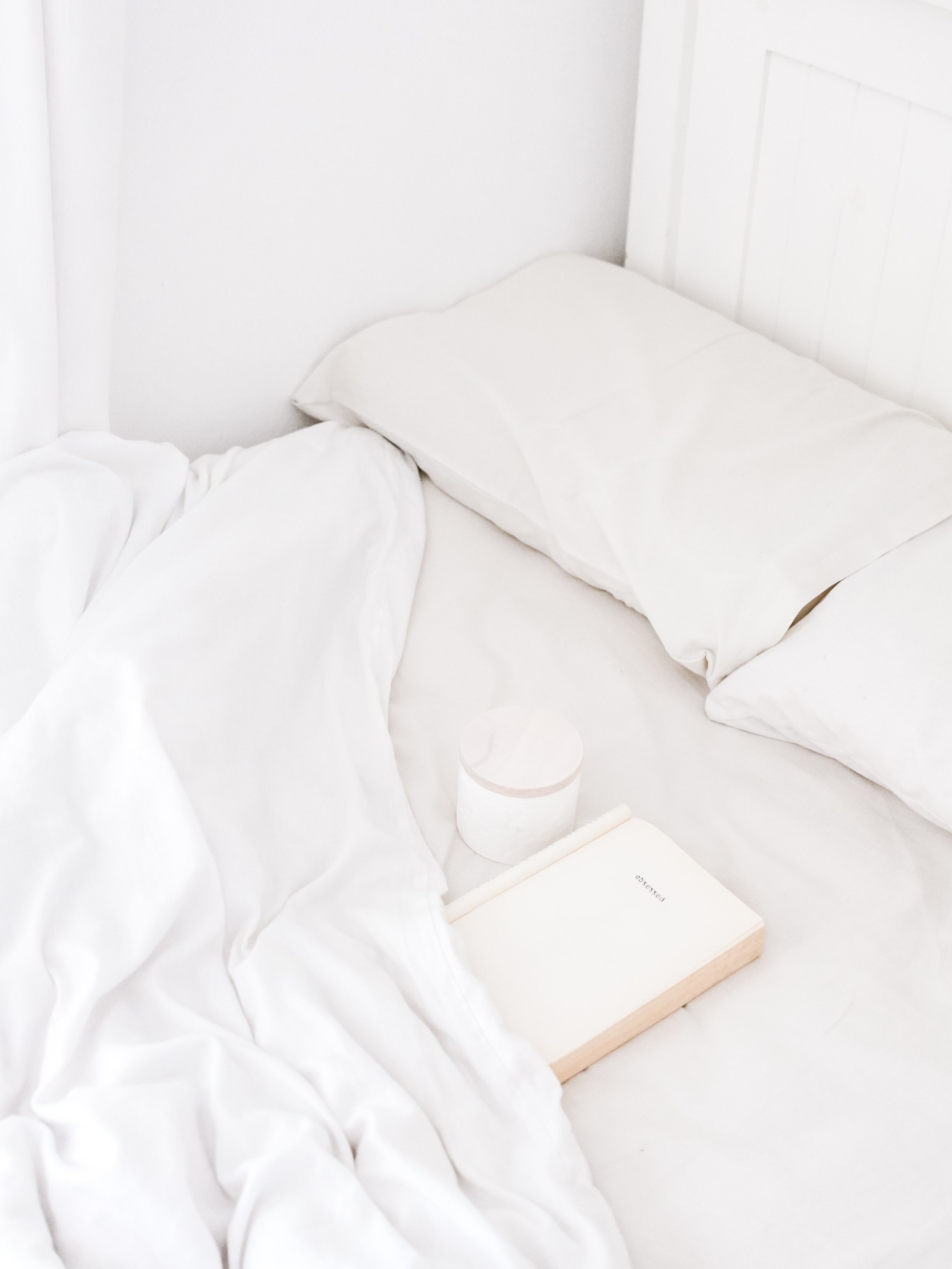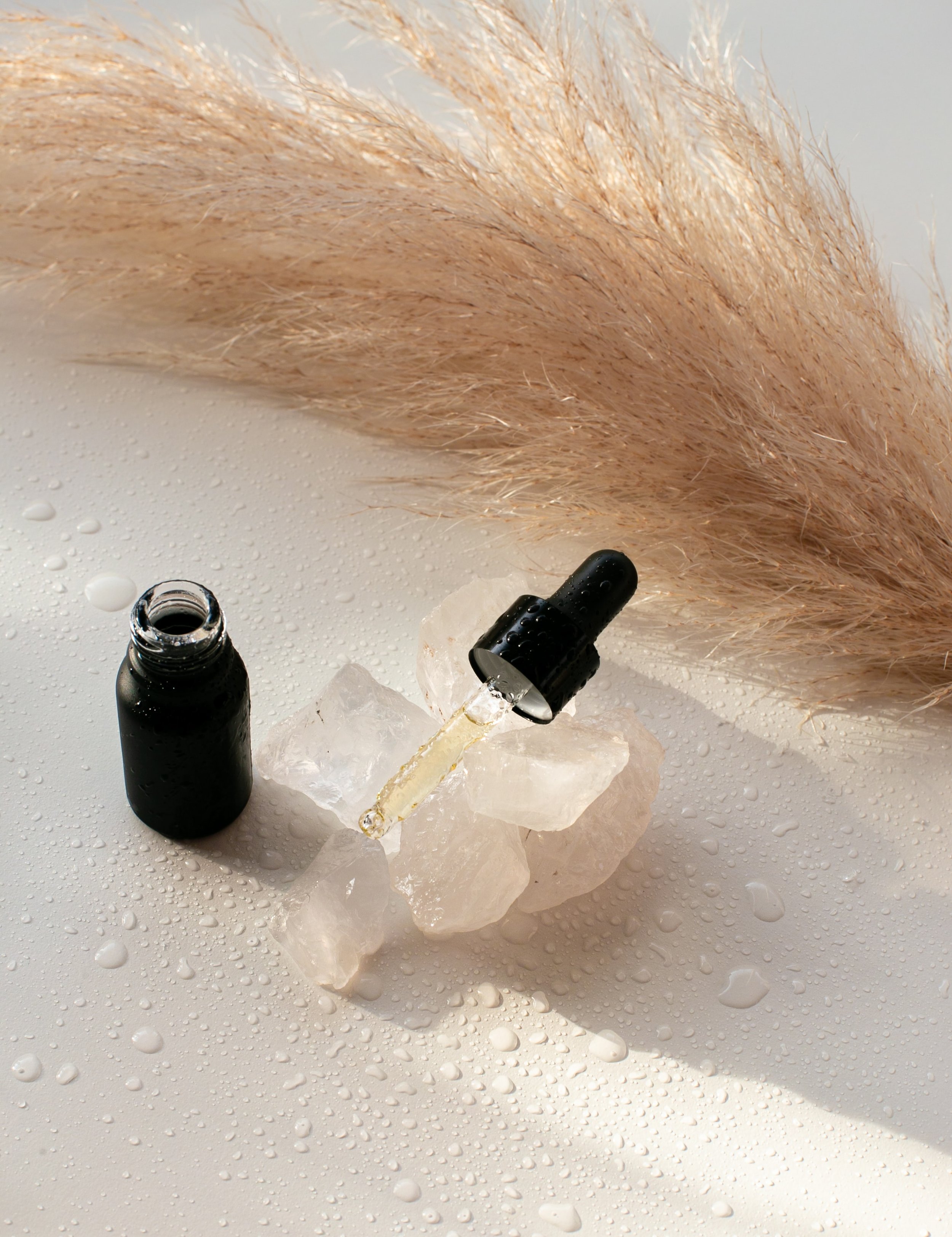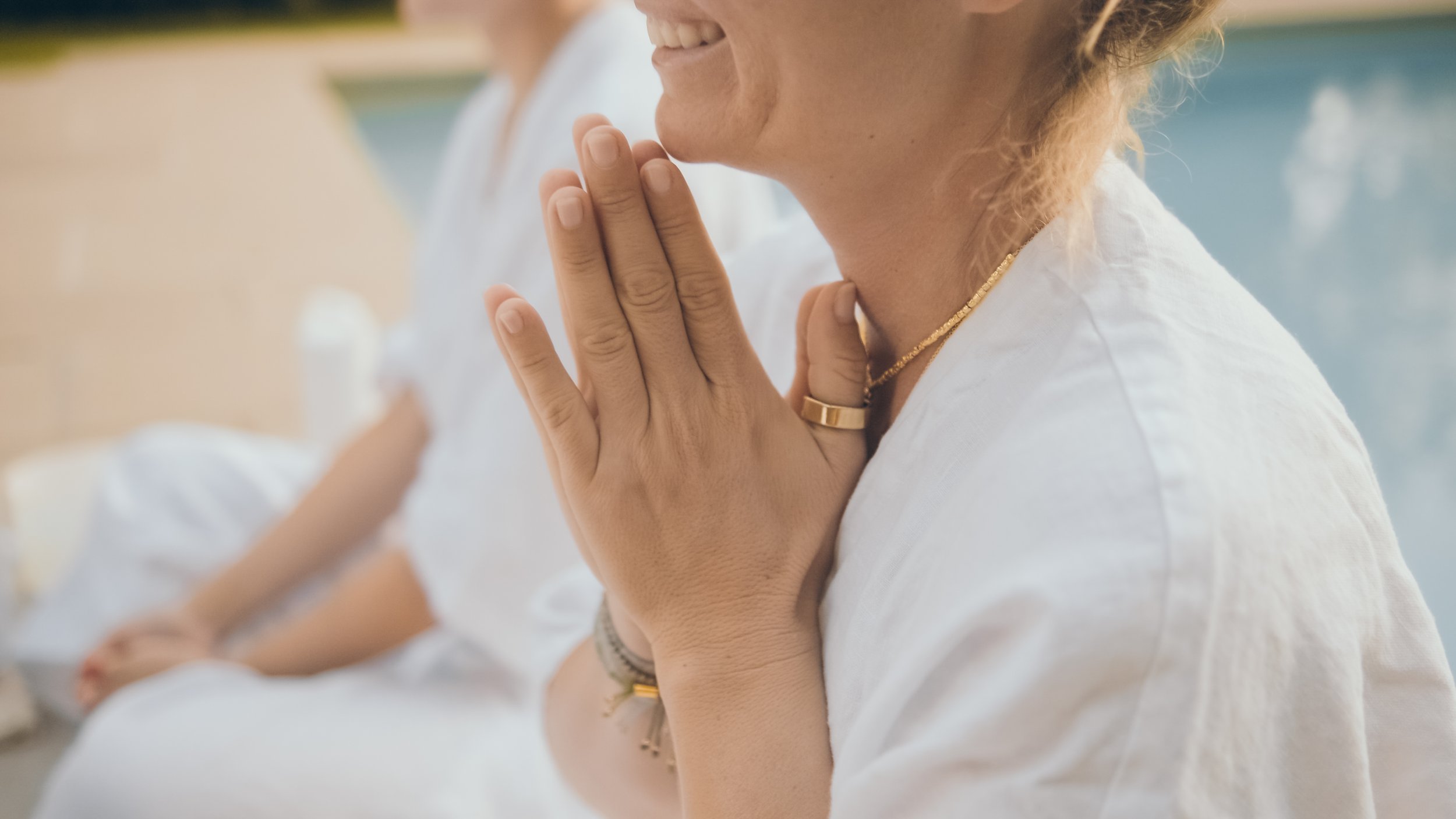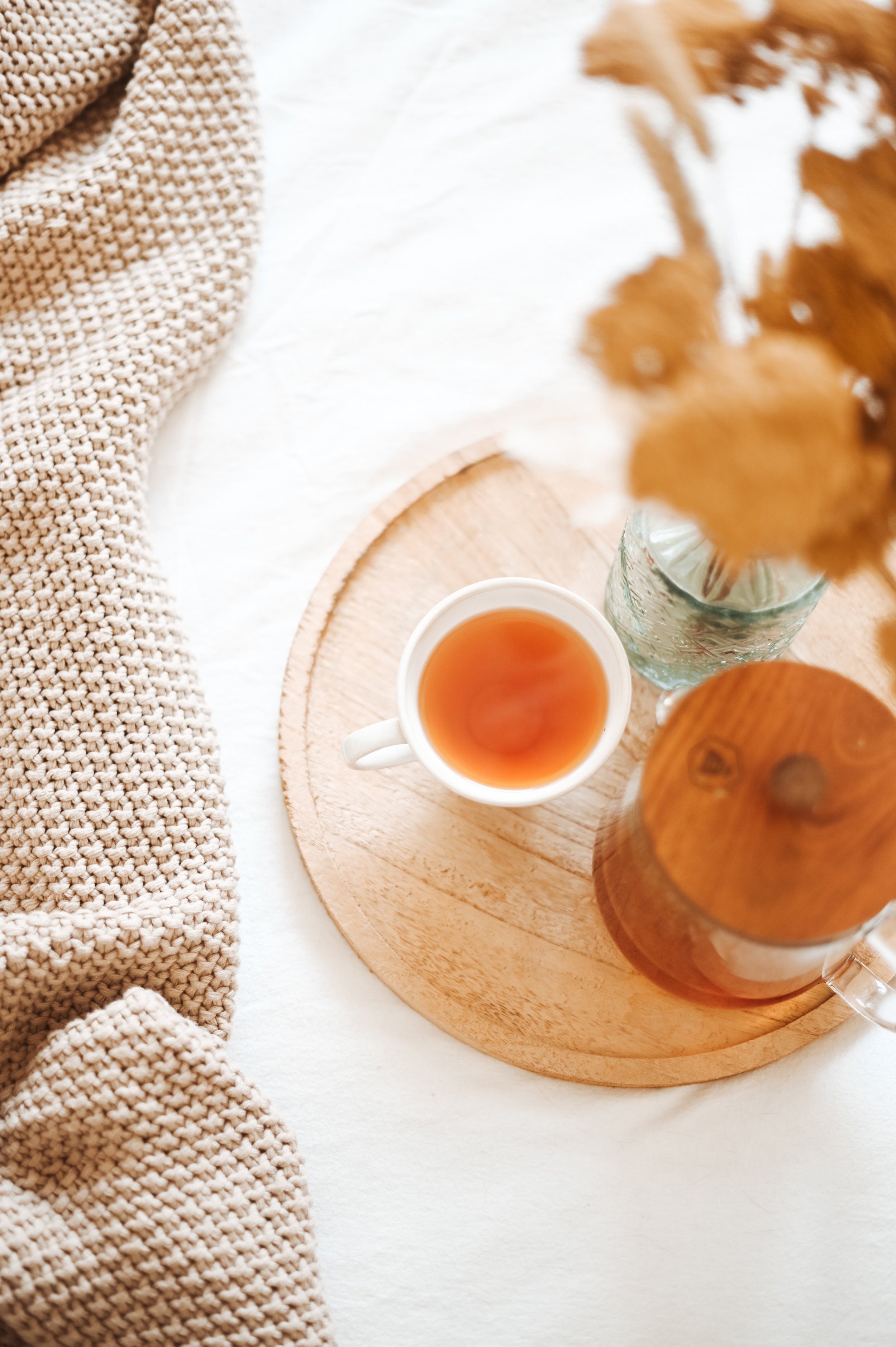A Guide to Better Sleep
Quality rest is something that most of us could certainly use more of. While most of us are aware that sleep is essential to our health, we still struggle to get the quality and amount that we need.
Do you find yourself regularly deprived of quality sleep?
Are you often sleepy during the day?
Do you struggle to get to bed at a reasonable time?
Do you frequently wake up in the middle of the night?
If so, you are definitely not alone.
Studies have shown that almost 50% of Americans say they feel sleepy during the day between 3 and 7 days per week and nearly 33% of working adults reported sleeping 6 or less hours per night (Sleep Foundation). While there are many factors that play a role in our quality of sleep, below are Altha’s tips on how you can start sleeping better tonight.
Curate a Relaxing Sleep Environment
The environment in which you sleep in plays a huge factor in how easily it is for you to fall asleep and stay asleep. To stimulate all 5 senses, we recommend making your room as dark as possible (use an eye mask if needed), drinking bedtime tea (we recommend chamomile, lavender, or passionflower), keeping your room at a cool temperature, breathing in lavender essential oils (or placing them in a diffuser), investing in soft & inviting bedding, and limiting outside noise as much as possible with calming sleep music or ear plugs.
Tip: Lower the lights in your bedroom 2 hours prior to going to bed to prepare your mind for sleep.
Say Goodnight to Technology
Screen time when you are unwinding for bed fills your head with new information, images, thoughts, and opinions which make it much harder for your brain to relax and rest. We know that you have likely already heard this many times before, but try to avoid any blue light (phones, TVs, computers) at least an hour before bed. This can be a difficult habit to create, so we recommend leaving your phone across the room when you head to bed and getting an alarm clock so you don’t rely on your phone. If you are working or studying late, turn off the blue light on your devices (most devices have this as a built-in feature). If you usually watch TV to wind down, try reading or listening to an audiobook.
Be Mindful of Your Alcohol Intake
Drinking alcohol has been found to decrease sleep quality by almost 40%. While alcohol can make you feel sleepy, it’s effect on your body makes it much more difficult for you to get enough REM sleep. If you know that you will be drinking, we recommend putting the alcohol down at least several hours before you go to sleep.
Tip: In addition to alcohol, caffeine also significantly affects sleep – try to avoid it at least 5 hours before bed.
Foam Rolling
10 minutes of foam rolling before bed will help to open up and relax your muscles and release serotonin, which will help you mind be more at ease.
Pay Attention to Your Dinner
Going to bed hungry or overly full will make it much more difficult to fall asleep. We recommend making your last meal on the lighter side and eating it at least 3 hours before bedtime.
Try Mouth Taping
Although it may seem odd, lightly taping your mouth shut while you sleep has significant health benefits. Forcing yourself to breathe exclusively through the mouth while sleeping can reduce inflammation, improve sleep quality, improve memory, and increase immune system functions (Everyday Health).
Don’t Forget to Move Your Body
Exercise is great for your overall physical and mental health, but it is also incredibly helpful in improving sleep. Daily exercise reduces the time it takes to fall asleep and decreases the frequency of times you wake up at night.
Tip: Although regular exercise improves sleep, try to avoid extremely strenuous exercise right before bed, as this can make it harder to fall asleep. If you are exercising in the later evening, we recommend opting for yoga or a long walk and stopping at least 2 hours before bedtime.
Stick to Your Sleep Schedule
Although we know this is not always possible, try your best to maintain a steady sleep and wakeup time. This will help to honor your circadian rhythm and better regulate your sleep.
Explore the Benefits of Supplements
Our favorite supplements we recommend for sleep improvement are magnesium, ashwagandha, and valerian root.
Track Your Sleep
If you would like to dig deeper and learn more about your quality of sleep each night, try tracking your sleep! While there are many sleep tracking apps out there, we highly recommend Oura Ring due to its incredible accuracy.
Create a Bedtime Ritual
Just like how a morning routine helps prepare you and get you ready to take on the day, an evening routine signals to your brain that it is time to rest. Let your body and mind know that it is time to sleep by curating a relaxing night routine. Some of our favorite bedtime rituals are taking a warm bath, lighting a candle, drinking non-caffeinated tea, listening to calming music, doing 10-15 minutes of yin yoga, and practicing relaxing breathwork exercises.
Clear Your Mind Before Bed
Do you often stay up late going through your to-do list for the next day or worrying about a stressful situation you may currently be facing? Here are some tips to clear your mind:
Write down your to-do list for the next day before bed to release it from your mind.
Set yourself up for the following morning by making your lunch for the following day, setting out your clothes, and cleaning up your home so you can have a fresh start in the morning.
Stressed? We recommend journaling about whatever is causing you stress or anxiety and then meditating for 10-20 minutes to relax the mind and reconnect with your higher self.
The Bottom Line
Just like everything else, becoming a successful sleeper takes time and practice. Implement a few new practices each week and continue to put sleep high up on your priority list – you will see a difference. As always, remember to be gentle with yourself and focus on progress, not perfection!
---
In addition to all of the above recommendations, another way to improve sleep quality is with sound healing! Attending an evening sound bath, listening to recorded sound baths through headphones, or playing your own instruments before bed all help to release & relax the body and mind before bed.
Discover how you can bring your own sound healing instruments home HERE and check out our upcoming sound baths!
New to Altha? We are an LA-based modern sound healing group committed to creating bespoke corporate & private experiences in Beverly Hills, Marina Del Rey, Orange County and beyond!








